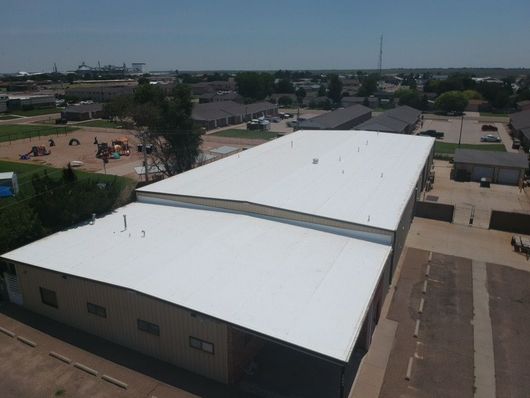When it comes to your business property, the roof is one of the most important aspects to consider. Not only does it protect your building from the elements, but a strong, durable roof can save you significant repair costs and even improve energy efficiency. In this guide, we’ll explore the best materials for commercial roofing and why investing in quality roofing is essential for long-term success.
How to Identify Your Commercial Roofing Needs
Commercial roofs face different challenges compared to residential roofs. Factors like climate, building structure, and the nature of your business operations all influence what type of roofing system is ideal. Whether you're managing a warehouse, an office building, or a retail store, understanding your specific needs will ensure that you choose the right roofing solution.
Top Commercial Roofing Materials
Several roofing materials are commonly used in commercial buildings. The best choice depends on your specific needs and budget. Each material offers distinct advantages, ensuring the right option for your business.
First Choice: Metal Roofing
Metal roofing is highly favored for commercial properties because of its long-lasting durability and energy-saving features. Available in materials such as steel or aluminum, metal roofs can handle extreme weather and provide excellent leak protection. Plus, their reflective surface can reduce cooling costs during the hotter months.
Flat Roof Systems
Flat roofs are often found on commercial properties due to their cost-effectiveness and ease of installation. These roofs are ideal for buildings with modern architectural designs. Materials like TPO, EPDM, or PVC are commonly used for flat roofing systems, offering great waterproofing and insulation properties. Regular maintenance and proper drainage are key to extending the life of a flat roof.
Third Option: Shingle Roofing
Shingle roofing is not as common for large commercial buildings, but it can be a good choice for smaller properties or those that need a traditional look. Asphalt shingles are affordable and come in various colors and styles, though they don't offer the same longevity as metal or flat roofs.
Roof Installation: Best Practices and Maintenance Tips
Once the roofing material is chosen, it’s time for installation. Hiring a qualified and licensed contractor guarantees proper installation, which is vital for preventing leaks and ensuring your roof’s longevity.
Regular maintenance is also essential. Inspections should be done at least twice a year, especially after harsh weather events. Look for signs of damage, such as missing shingles, cracks, or pooling water. Cleaning gutters and removing debris can also prevent long-term damage and extend the life of your commercial roof.

How Investing in a Quality Roof Protects Your Business
Investing in a quality roof pays off in the long run. A well-constructed roofing system shields your property from leaks, which can lead to costly damage to your building and assets. Additionally, it improves energy efficiency, cutting down on operating expenses and boosting your property's value. Proper maintenance ensures you avoid future costly repairs.
Conclusion: How to Choose the Right Roofer for Your Commercial Property
Finding the right roofing contractor is key to the success of your project. Seek out a licensed, experienced roofer who understands the unique requirements of commercial properties and can provide expert advice. The right contractor will also assist with installation and maintenance, ensuring the longevity of your roof.
Thinking about upgrading your commercial roof? Get in touch with us today for a free consultation, and let us guide you through the best roofing options for your property.
#CommercialRoofing #RoofingMaterials #BusinessProtection #MetalRoofing #FlatRoofing #RoofInstallation #EnergyEfficiency #RoofMaintenance